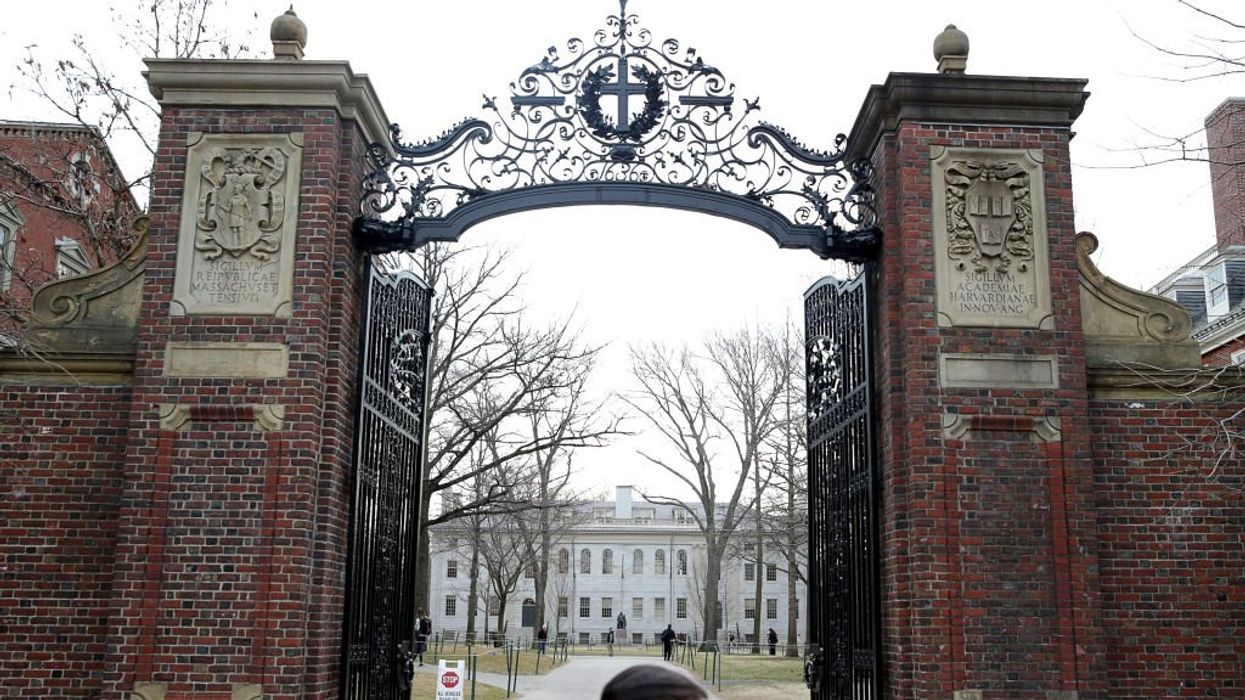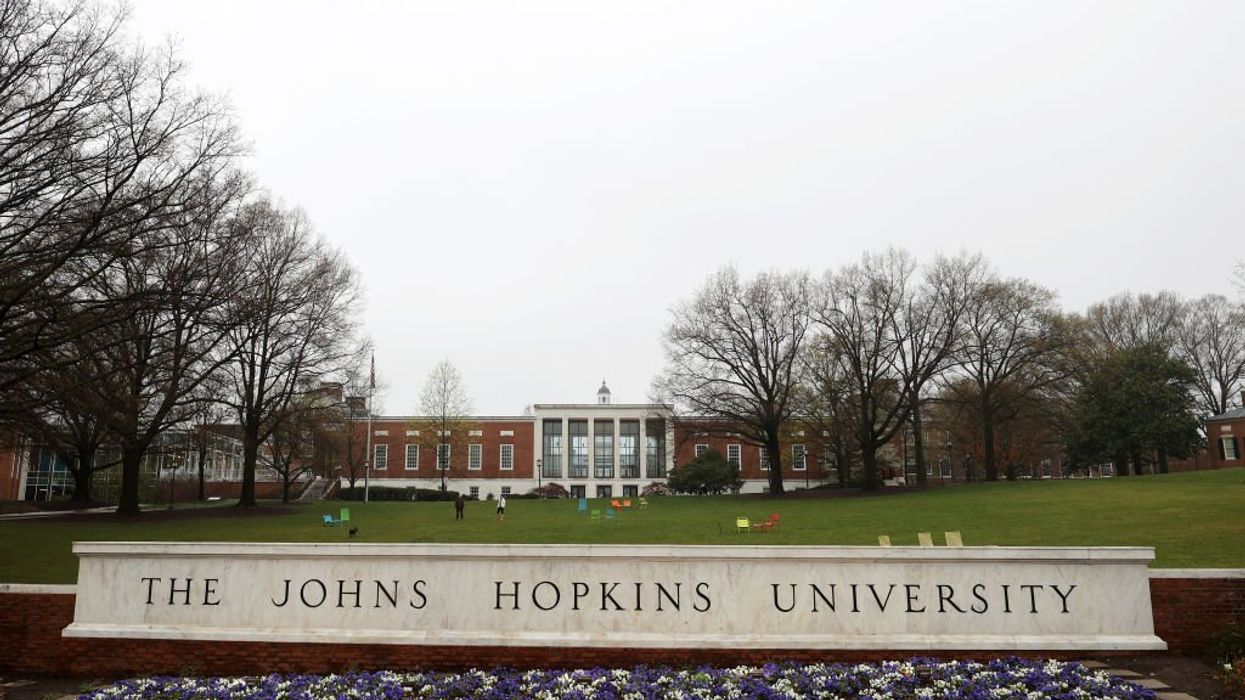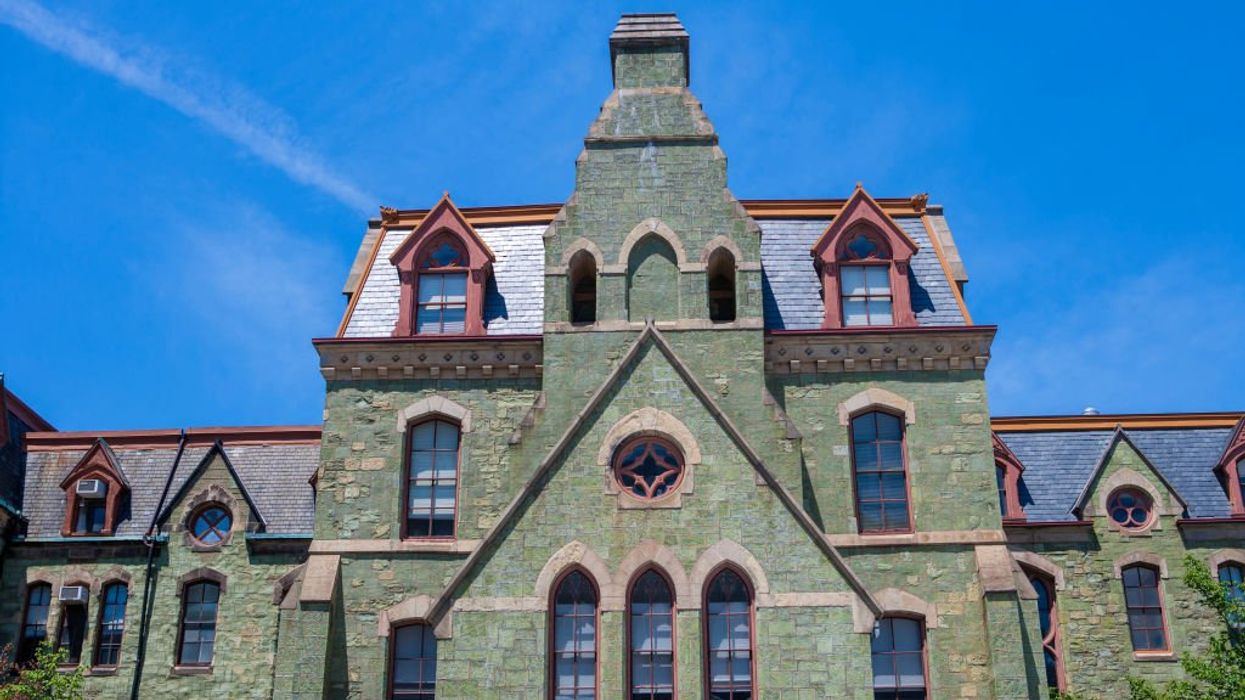Former United States Senator Rick Santorum is surging in the polls after his mid-west sweep and has nearly doubled his numbers overnight. He followed that up with a rousing speech at CPAC where he didn't hold anything back. Romney also spoke and tried to make the case for his conservatism as more people move towards Santorum. Check out Glenn's conversation with SE Cupp who is at CPAC covering the event in the clip above.
GLENN: Let's go to S. E. Cupp who is down at CPAC. Hi, S. E.
CUPP: Hi, boss, how are you?
GLENN: Good, how are you?
CUPP: Happy birthday? Is that right?
GLENN: It is. It is my birthday. What did you get me?
CUPP: No, I was actually told I have a chief of staff friend for a Republican congressional member ran up to me today and said, oh, my God, Glenn and I have the same birthday. Please tell him happy birthday. So he alerted me.
GLENN: Really? He's a congressional staffer?
CUPP: He's chief of staff for a Republican member.
GLENN: Really?
CUPP: Yes.
GLENN: A good member or a bad member?
CUPP: He's great. Tim Huelskamp is a member.
GLENN: Don't know who Tim is.
CUPP: Okay.
GLENN: But I'm going to take your word for it. I love him. Where is he from? Where is he from?
CUPP: Kansas.
GLENN: All right. Well, so was Kathleen Sebelius and so I ‑‑
PAT: You never know.
GLENN: You never know. Tell me about CPAC. What's happening at CPAC? What is the attitude there? What's happening?
CUPP: Yeah, I mean, it's a bigger crowd than ever and over half of the crowd is under the age of 25 which is ‑‑ which is great. CPAC every year gets bigger and younger. I think that's really, you know, heartening for the future of the conservative movement. The buzz on the ground is all Santorum. It is all anyone is talking about. I talked to 20‑somethings, young kids in college or just out of college who are now really excited about Santorum and said, even admitted, had I asked a week ago, they would have said no, they didn't think he was electable a week ago. But after Tuesday and the momentum that he's building, they are giving this guy another look.
GLENN: He just spoke, did he not?
CUPP: Yes, he did.
GLENN: How did it go and what did he say?
CUPP: It went really well. He gave a broad, sort of sweeping speech, contrasting him with Mitt Romney and then also contrasting himself with Obama. He touched on the Catholic contraception issue.
GLENN: Okay, stop, stop. Stop, stop.
CUPP: What?
GLENN: Don't ever say it's a contraception issue again. You're playing into ‑‑ you're playing into the Obama administration. Change your language.
CUPP: Okay.
GLENN: And control the argument is what they always say. It is not about contraception. It is about freedom of religion.
CUPP: That's right.
GLENN: It is religious exercise. Okay. Go ahead.
CUPP: He talked about ‑‑
GLENN: Freedom of religion.
CUPP: Freedom of religion.
GLENN: And the Obama administration attack on it.
CUPP: And the Obama administration attack on it.
GLENN: What did he say about it?
CUPP: So funny you should ask. He made a really good point. It was not his main point but it was a cursory point and he said, look, is this really the point of health insurance to provide something that costs probably a couple of bucks a month? Is that really health insurance? This isn't about insurance. This is about a mandate. This is about growing government and it's government encroaching into the private sector, you know, infringing on your freedom of choice and religion. It was an interesting point and one that the crowd I think really sort of appreciated. And then of course, you know, he went on to touch on the three pillars of his campaign which are Obama is reaching too far into the manufacturing industry, too far into environmental issues, and too far into the economy and ‑‑
GLENN: I disagree with ‑‑ I disagree with all of those.
CUPP: Oh, okay.
GLENN: I may be off, I may be off ‑‑
STU: In what way?
GLENN: He says he's reaching too far. No. He's reaching into.
STU: Yeah.
GLENN: Too far? He's reaching too far into manufacturing? No, no. The president is reaching into them.
STU: He's doing a full cavity search of these issues.
GLENN: Get your damn hands out of the cookie jar. They don't belong there.
CUPP: Right. That he's in there at all ‑‑
GLENN: Yeah.
CUPP: ‑‑ is your problem.
GLENN: Is the point.
CUPP: It was a good speech. It was ‑‑ the crowd really liked it.
GLENN: So tell me about the Ron Paul support and the Gingrich support and the Romney support.
CUPP: You know, Romney still comes in the frontrunner. CPAC let's not forget is still very much an establishment event, you know? I mean, a lot is made of this being a movement conference, and it is that. But I mean, let's be honest. The establishment media comes, all the establishment candidates come, the GOP establishment, good politicians come and speak. So he still comes in with some excitement.
GLENN: I'll tell you that, you know, when I spoke there two years ago ‑‑
CUPP: Yeah.
GLENN: ‑‑ it's split. There is the establishment that is desperately trying to hold on.
CUPP: Yeah.
GLENN: But there is ‑‑ CPAC is not your grandfather's political movement. It is not what, you know, all these ‑‑ you know, it's not what the Bill Kristols of the world, you know, tried to make it into.
CUPP: You know ‑‑
GLENN: Anymore.
CUPP: ‑‑ that's completely true. Like I said, it's very young. It is a conference, you know, geared towards students, toward young people. And so they have a lot of say in the kinds of events and speakers.
GLENN: What is ‑‑ tell me about the support for Ron Paul. What's happening on his front?
CUPP: Yeah. I mean, it's weird because CPAC is usually, you know, Ron Paulapalooza and you can literally not escape the Ron Paulites every year. This year it's actually been kind of muted. A, he's not speaking here. He's out campaigning. And B, I really think Santorum seems to have taken a lot of his, you know, young supporters away just because of the good week he's having. I met one Ron Paul supporter who was over 50. Not, you know, the traditional Ron Paul fan that you meet.
GLENN: You know, is there a possibility that Santorum could step into ‑‑ you know, I said before Obama was elected, I said if we elect Barack Obama, the next guy that America will rush to will be fat and kind of disheveled. And Chris Christie's not running. Ron Paul has this anti‑politician ‑‑ I mean, he's been in Washington forever but he still is this anti‑Washington kind of choice and it kind of makes him cool with the kids nowadays. Is it possible that Santorum kind of has that as well because he's kind of the nerdy kind of ‑‑ you know what I mean? He's ‑‑
CUPP: He is. He's ‑‑
GLENN: Father Knows Best kind of guy which is so anti‑ everything that's going on in the culture.
CUPP: I think you're absolutely right. I've been calling it geek chic, you know, with the sweater vest and the boyish hair and I mean, there is something there. And we are rejecting cool and charisma and, you know, shiny Hollywood this year, then I think that certainly plays to his advantage. That said, I'm not sure he's any less cool than any of the other Republican candidates. I mean, Mitt Romney ‑‑
GLENN: No, the Republicans.
CUPP: You know, Newt Gingrich, not cool.
STU: No?
GLENN: Really?
STU: Really?
GLENN: How is the Newt Gingrich support there?
CUPP: Radio silence. I have heard no one talking about Newt, which is weird. He's on the schedule like 7,000 times, appearing simultaneously to talk about his various movies and books and ideas and ‑‑
GLENN: I hate those guys that do that. They're always shilling something and always doing something and selling a book or a movie. Man.
PAT: Mmm‑hmmm.
CUPP: He is ‑‑ yeah. So he is everywhere and nowhere, which is interesting. I just have not seen a lot of buzz about him. No one's really talking about, you know, his race and his speeches. They are just not focused on Newt Gingrich right now.
STU: S.E., we heard a lot in lead‑up to CPAC that there is going to be a presence from Occupy CPAC. Have we seen that?
CUPP: I didn't yesterday. Today is supposed to be the day when they come in and stab everyone. So ‑‑
GLENN: But with love.
STU: Yeah.
GLENN: With love.
CUPP: They told us much, much like, you know, the Obama administration sort of tells our enemies when we're pulling out, when we're leaving, when it's safe to come in. They were kind enough to tell us when they plan to assault us all. So police presence is crazy today. I haven't really seen anything, you know, cropping up. But you will be the first to know if I do.
GLENN: All right. Thank you very much, S. E.
CUPP: All right.
GLENN: I mean, if you're going to get a stab wound, just make sure it's a flesh wound. We don't want to lose you.
STU: And keep it on camera for GBTV purposes.
GLENN: Yeah, you can die as long as we have it on tape.
CUPP: My thoughts exactly.
GLENN: Okay. Thanks a lot, S. E., appreciate it.











